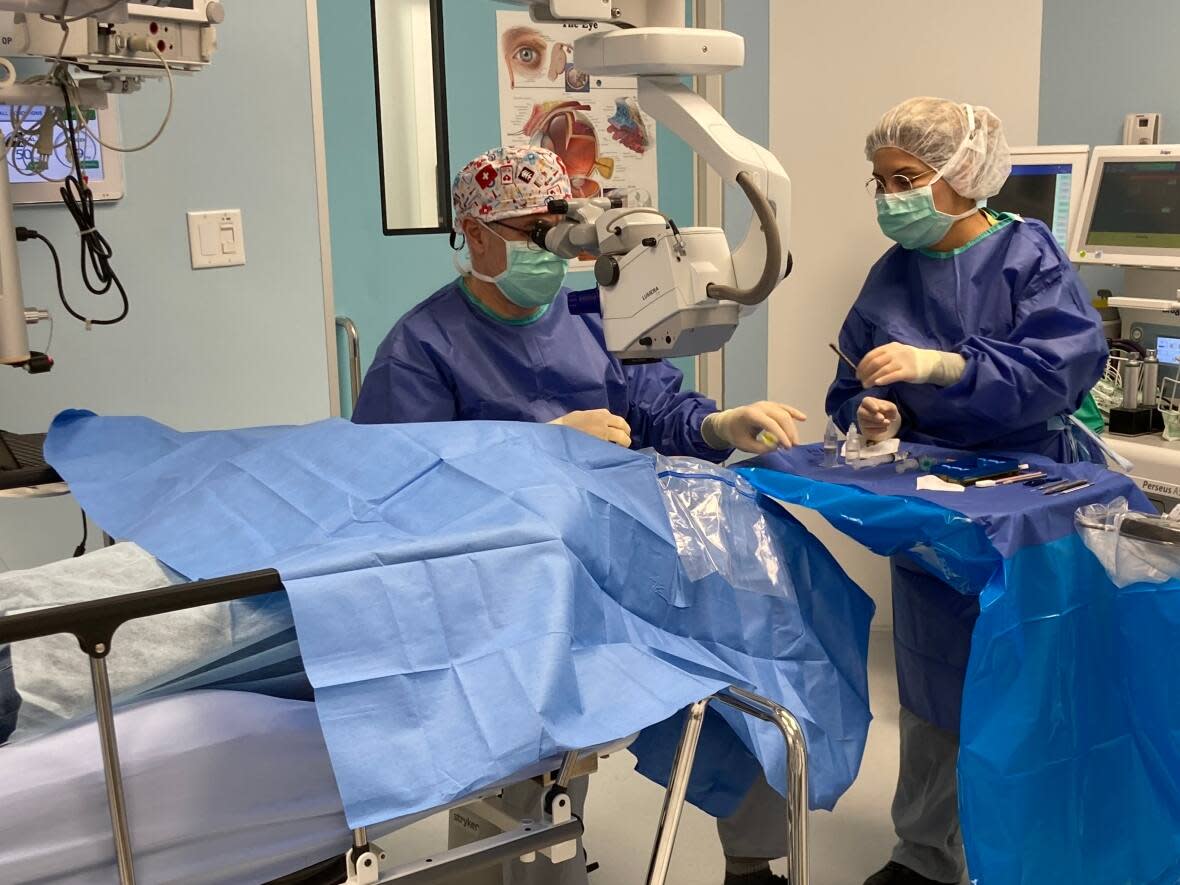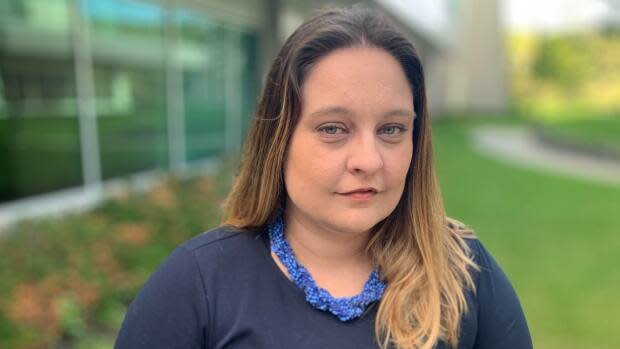NDP would review private health contracts if elected, candidate says

If elected, the Alberta NDP is promising to review private health service contracts inked by the United Conservative government, including chartered surgical centres and community labs run by DynaLife.
NDP Edmonton-City Centre candidate David Shepherd said Wednesday his party would scrutinize the contracts to determine how well they're serving Albertans.
"We're not looking to create chaos the way the UCP government did by tearing up systems, tearing up programs, simply on an ideological whim," he said at a press conference Wednesday.
The UCP government has been trying to increase the proportion of surgeries performed in private clinics by signing more outsourcing agreements.
Alberta Health Services has contracts with more than 30 private providers listed on its website for eye surgeries, oral surgery, dermatology, and joint replacements, among others. The procedures are publicly funded but take place in privately operated clinics.
Following the recommendations of a review seeking health-system efficiencies, AHS also privatized community labs in Calgary, central and southern Alberta between December 2022 and February 2023.
DynaLife, which already operated community-based labs in Edmonton and northern Alberta, took over the previously public labs in the south.
Since then, patients have said it can take a month or more to get routine lab tests done — a scenario doctors say is problematic and puts undue pressure on ERs.
Shepherd said if elected, the NDP would review the parts of the contracts that have not been publicly released "to see how DynaLife can be held accountable to their obligations."
Shepherd added the NDP did not terminate any private health-care contracts while the party governed from 2015 to 2019.
Easing out of contracts
Health policy experts say there are ways any government could reduce their reliance on contracted services without ripping them up.
University of Calgary health law professor Lorian Hardcastle says the portions of the surgical contracts that have been made public allow for either party to terminate the agreement if substantive legislative changes alter the health system enough that the contracts no longer make sense.

The contracts posted on the AHS website have varying end dates. Some go as long as 2029.
Hardcastle said a government could pay for no more than the minimum number of procedures the contracts require.
Steven Lewis, a health policy consultant and adjunct professor at Simon Fraser University, said it may be more feasible for a government not to renew expiring contracts, rather than terminate them and pay penalties.
The public system would also have to build more operating rooms to handle the procedures now performed in private clinics, he said.
Reneging on the DynaLife contract would be more difficult, both professors said, because there is no other community lab system.
It would be better for everyone if DynaLife could resolve the challenges in the existing system, Lewis said.
He said that a jurisdiction swinging back and forth between public and privately operated health services creates instability for clinic owners and health-care workers. And it costs the public money every time a system undergoes major change.
"It would be much better if there were a political consensus in Alberta, and stick to it," he said.
In response to questions about Shepherd's comments, a UCP spokesperson touted the party's record completing more cancer surgeries in 2022 compared to the NDP's last year in office.
"If the NDP government cancelled the chartered surgical facilities contracts, Alberta would lose 20 per cent of its surgical capacity, capacity that Albertans waiting for surgeries cannot afford to have lost," the party statement said.
A Parkland Institute study published on Tuesday concluded that pushing more surgeries into private clinics hasn't improved surgical wait times or helped tackle long waiting lists in the province. Alberta Health Services disputed the conclusion, saying the data only goes up to 2021-22, when the health system was still in the throes of the COVID-19 pandemic.


